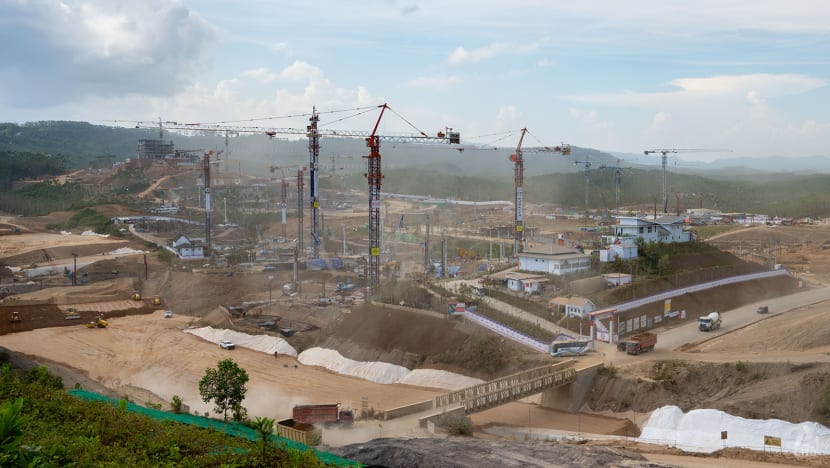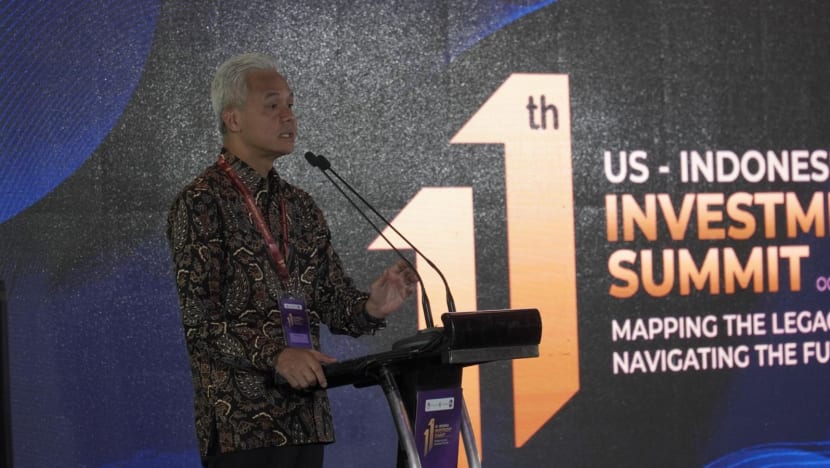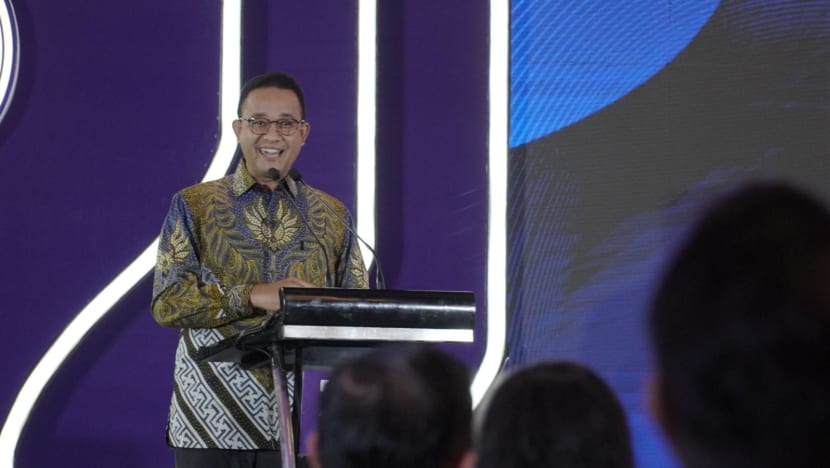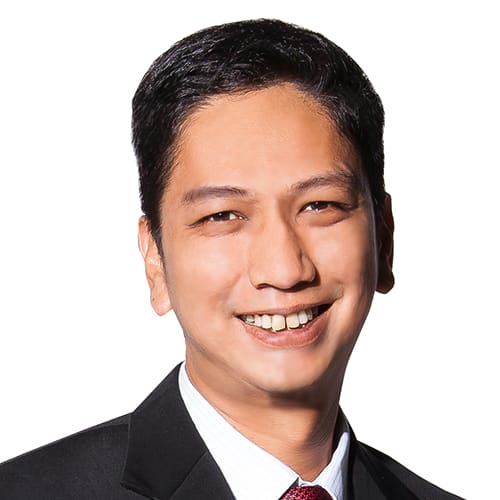Indonesia presidential candidates pledge to attract investments; businesses outline expectations for next leader
Former Jakarta governor Anies Baswedan and ex-Central Java governor Ganjar Pranowo struck a similar note that there needs to be reform to lure more investments while speaking at the US-Indonesia Investment Summit in Jakarta.


This audio is generated by an AI tool.
JAKARTA: Two Indonesian presidential candidates on Tuesday (Oct 24) promised international companies and investors a better investment climate and ease of doing business, if they were to win the Feb 14 election next year.
The outcome of the election will determine who gets to lead Southeast Asia’s biggest economy for the next five years, and the business community are wondering whether the new leader will continue the legacy left behind by the current President Joko Widodo, who is barred by Indonesia’s Constitution to run for a third term.
Three candidates are expected to participate in the country’s presidential election: former Jakarta governor Anies Baswedan; former Central Java governor Ganjar Pranowo; and Defence Minister Prabowo Subianto.
Speaking in separate sessions at the US-Indonesia Investment Summit in Jakarta organised by the American Chamber of Commerce, Mr Baswedan and Mr Pranowo struck a similar note that there needs to be reform to lure more investment into the country.
“We need efficiency so it is not too difficult for investors to come. Illegal fees must be eliminated, (bureaucracy) must be faster, easier and cheaper... This is what investors are complaining about,” Mr Pranowo told the summit.
Mr Pranowo said, if elected, he wants to see more investment in the renewable energy sector as Indonesia, under the current administration, pledges to become carbon neutral by 2050.
“This is an opportunity that we can explore in a not so distant future,” he told the business community. “The elected president has until October before he is sworn in… once we already have an election result... technically, (the president-elect) can already come up with plans.”
Mr Pranowo and Mr Widodo are both members of the Indonesian Democratic Party of Struggle (PDI-P) and thus, analysts have said that Mr Pranowo, if elected, would most likely continue much of the incumbent president’s policies and programmes.

PRAISE FOR JOKOWI
Several businesses and analysts speaking at the summit praised Mr Widodo, better known as Jokowi, for introducing sweeping changes in 2020 to various laws which were earlier deemed unfavourable to Indonesia’s investment climate.
Speaking during his session, Mr Baswedan hinted that he might not seek to revoke these changes, adding instead the importance of making sure regional-level regulations are in line with these national laws.
“The feedback that we received (from the business community) is more on policy. There needs to be consistency, predictability and synchronising policies (between the national and regional levels),” he said.
Mr Baswedan told the summit that, if elected, he wants to see more investment in less-developed provinces and areas.
“We have seen a new phenomenon across the globe that (economic) disparities between countries are narrowing down. But disparities within a country are widening…
“We would like to see more centers of economic growth across Indonesia, not only in Java,” he said referring to Indonesia’s most developed island where the country’s capital Jakarta is located.

Mr Baswedan also promised to root out corruption, which he said has been deterring many investors from putting money into Indonesia, the world’s third-largest democracy.
Indonesia ranked 110th cleanest nation in the world among the 180 countries surveyed by non-for-profit Transparency International in 2022. The year before, the country ranked 96th globally.
Mr Widodo and Mr Subianto were both scheduled to speak at the same summit but cancelled their appearances at the last minute.
MORE WORK STILL NEEDED
Mdm Satu Kahkonen, the country director for World Bank Indonesia and Timor-Leste, said whoever wins the election must make sure the country’s post-COVID-19 economic recovery stays on track, particularly amid the threat of a global economic slowdown caused by the property crunch in China.
“China's slowdown may affect exports and investments. So we need to be prepared for that,” Mdm Kahkonen told the summit.
“As a result of that, there is a need for significant structural reforms in all countries across the region, including in Indonesia.”
Mdm Shinta Kamdani, chairwoman of the Indonesian Employers’ Association, said the next president also needs to improve the country’s workforce as Indonesia strives to become a developed nation by 2045.
“We believe (the goal) can only be achieved through breakthroughs in key aspects, namely the human capital transformation... transitioning from a country that is dominated by unskilled workers to one that is dominated by skilled workers,” she said.
“Second, make it so that Indonesia’s business and investment climates are globally competitive.”

















